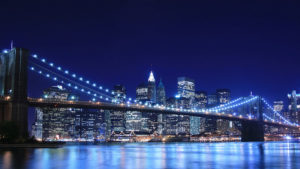A Local Law 152 inspection must be performed by a New York City Licensed Master Plumber, or a qualified individual working under that Licensed Master Plumber’s supervision. In order to prepare the required Gas Piping System Periodic Inspection Report, the entire gas piping system is thoroughly inspected. All findings are recorded for the building owner or board to review. This report will include a list of conditions requiring correction, frayed or worn piping components that affect safe and reliable operation, non-code compliant installations or illegal connections, the detection of combustible gas, and any other conditions determined to be unsafe. This inspection also checks to ensure appropriate gas detection technologies are in place.
Who Needs a Local Law 152 Inspection?
Local Law 152 applies to most buildings in New York City, but there are important exceptions:
- Required: All buildings except one- and two-family homes.
- Exempt: Buildings classified under Occupancy Group R-3.
- No Gas Piping? Even if your building does not have gas piping, you are still required to submit a Gas Piping System Periodic Inspection Certification. In this case, a registered architect or certified engineer must assist in certifying the existing conditions.
- Certificate of Occupancy: Your building’s Certificate of Occupancy (CO) will indicate your occupancy group classification. If you’re unsure of your building’s status, consult your CO or reach out to a professional with your building address handy.
Inspection Criteria
During the inspection, the qualified gas piping system inspector looks for evidence of:
- Excessive atmospheric corrosion or piping deterioration
- Illegal connections
- Non-code compliant installations
Additionally, the following conditions must be reported immediately to the owner, utility company, and Department of Buildings (DOB):
- Gas leaks
- Illegal connections
- Non-code compliant installations
- Any condition defined as “Class A” by the utility company, considered an imminently dangerous condition
If everything is fine, the paperwork is filed, and the property owner has nothing to worry about. If problems are found, they can fall into one of two categories: Unsafe/Hazardous and Deficient. Unsafe/Hazardous conditions result in an immediate interruption of gas service until the situation can be resolved. This is for reasons of public safety. Deficient conditions aren’t immediately hazardous but do need to be repaired within 120 days, another inspection performed, and paperwork filed with the DOB.
If your building doesn’t have gas piping, you are required to certify existing conditions with the assistance of a registered architect or certified engineer. Failure to certify by the appropriate deadline also carries a $10,000 fine. Certain buildings are exempt from the need to have gas piping inspections performed.
How to Schedule Your Local Law 152 Gas Piping Inspection
Wondering how to get the ball rolling on your building’s Local Law 152 inspection? It’s actually much simpler than you might think.
First, you’ll need to determine your building’s occupancy group classification, which is listed on your Certificate of Occupancy (CO). If you’re not quite sure where to find this information, don’t worry—a quick call to your building management office, or checking your official property records, can usually set you on the right path.
Once you’ve gathered your building details:
- Contact a New York City Licensed Master Plumber (or a qualified technician working under one), as only these professionals are authorized to conduct the inspection.
- Have your building’s address and occupancy details handy when you reach out. This helps streamline the process and ensures your inspection is assigned to the right professional.
- If you’re unsure where to start, resources like the [NYC Department of Buildings’ License Search](https://www1.nyc.gov/site/buildings/industry/check-license-registration.page) can help you verify or locate Licensed Master Plumbers in your area.
When you schedule your inspection, reputable plumbing companies will coordinate with you to handle both the inspection and the subsequent filing of your Gas Piping System Periodic Inspection Report with the city. That way, you stay compliant, avoid costly fines, and keep your building—and your tenants—safe.

